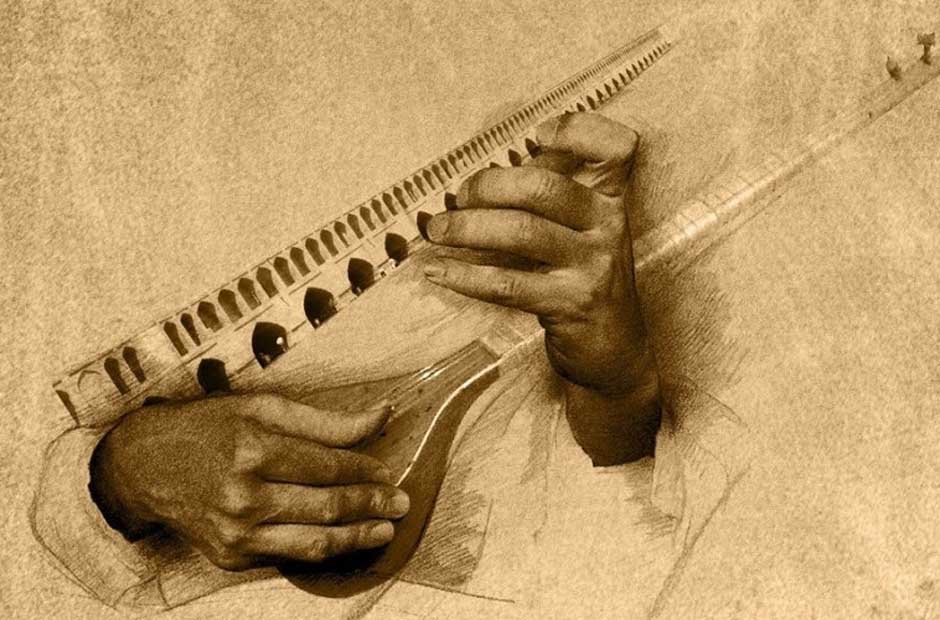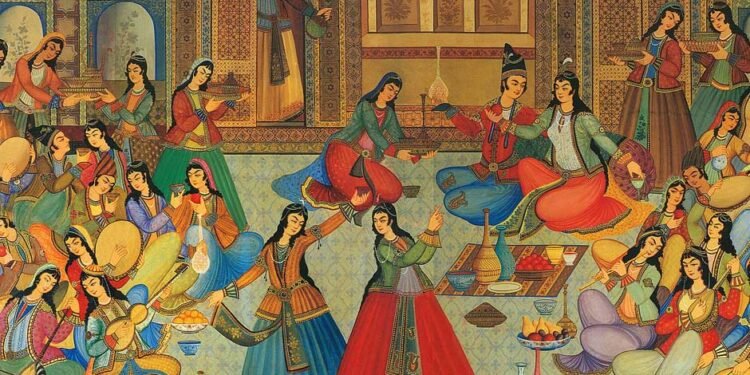The phrase “Ageh ghadam ranjeh konin” is one that is steeped in the culture of Persia, replete with the very grace and courtesy that is synonymous with the language. In English, that translates to “If you would deign and come,” but more literally, it means “If you would step forward.” Not only does this show a great deal of respect and hospitality, but it is also a song title of the famous singer Sattar, immortalized in Persian music.
In this paper, the cultural meaning of “ageh ghadam ranjeh konin,” its usage in everyday life, and its prominent place in Persian music are examined.
The Cultural Meaning of Ageh Ghadam Ranjeh Konin
A Reflection of Persian Etiquette
“Ageh ghadam ranjeh konin” has more to it than what is said; it reflects the stress put by the Persians on politeness, respect, and hospitality. Inviting someone to join or enter was done formally. The language was very specific so that the guest would feel honored and esteemed. The poetic lines expressed in the phrase raised the act of inviting a person to be an honoring action.
The expression, at times, extends itself as an invitation for one to enter a room, take a seat, or join an assembly. It is the deepest form of respect shown to another’s presence and, as such, the individual being addressed feels genuinely welcome and important. Formality and warmth of “ageh ghadam ranjeh konin” are central to Persian hospitality; comfort and the dignity of the guest are paramount.
A Polite Invitation
This expression is utilized both formally and informally. For instance, if you have invited someone to your home, you would tell them “ageh ghadam ranjeh konin” as you would invite them inside to take their places at a table. In professional circles, it would be used to invite somebody politely to step forward and speak or to take his or her place during a meeting. The expression just adds grace and respect to the interaction, further detailing how much value is placed upon the existence of the other.
Ageh Ghadam Ranjeh Konin in Persian Music

The Song by Sattar
The phrase “ageh ghadam ranjeh konin” entered popular culture through a song with that name, performed by Persian singer Sattar, who is known for his Soul Voice and passionate performances. Sattar, whose full name is Abdulhassan Sattarpour, rose to prominence as one of the leading Persian singers in the 1970s. One of his most favorite songs is this very “Ghadam Ranjeh,” through which he has expressed tender emotions to vast audiences across Iran and the Persian-speaking diaspora.
The song “Ghadam Ranjeh” is the epitome of how some of the traditional Persian phases and expressions are intertwined with modern music to bring forth a number that is at once culturally evocative as well as emotionally moving. The lyrics, including the “ageh ghadam ranjeh konin,” beckoned the beloved to draw closer, thereby giving expression to the depth of affection and longing that the singer feels. The melodic structure, combined with Sattar’s enthusiastic delivery, makes it one of those immortal songs to be imprinted on the souls of its listeners. Second, the emotional depth of “Ghadam Ranjeh” by Sattar is beyond being a song; it speaks of a poetic love and longing. Of course, adding “ageh ghadam ranjeh konin” to the lyrics lends emotional depth by evoking the humility and earnestness of the request for the presence of the beloved. Much of the song’s immense popularity should be credited to Sattar’s singing and the way it embodies Persian romanticism: love expressed with such beautiful language and a profoundly reverential feeling for the beloved.

But that the song is still so popular to this day speaks volumes as regards just how much it has been able to bind itself to the listener. Be it weddings or family functions, not to mention the intimacy of one’s room, “Ghadam Ranjeh” never fails to bring out goosebumps and continues to maintain its status as a classic in the collection of Persian music.
Conclusion
The phrase “ageh ghadam ranjeh konin” encapsulates the epitome of beauty and richness in the Persian language and culture. Its application in everyday life suggests that politeness, respect, and hospitality form part of the core of Persian culture. Further, its use in Persian music, more specifically in Sattar’s iconic song, indicates how traditional expressions could be kept intact and honored in more modern artwork.
“Ageh ghadam ranjeh konin” reminds us that the power of language is not conveyed by words alone but also by feelings, cultural values, and social norms. It is a word of summons to presence and at the same time to emotion; therefore, it is so dear to Persian cultural heritage.












